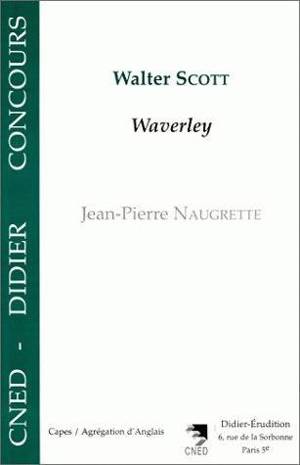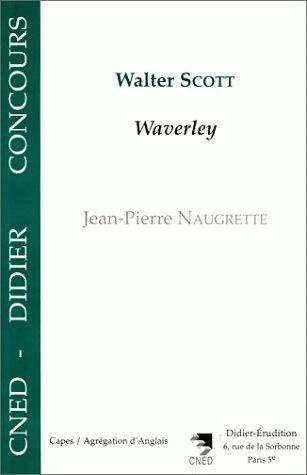
- Retrait gratuit dans votre magasin Club
- 7.000.000 titres dans notre catalogue
- Payer en toute sécurité
- Toujours un magasin près de chez vous
- Retrait gratuit dans votre magasin Club
- 7.000.000 titres dans notre catalogue
- Payer en toute sécurité
- Toujours un magasin près de chez vous
Description
Sir Walter Scott, universally known as `The Author of Waverley' will be taken here basically as the author of Waverley. From his Introductory Chapter to his `Postscript, which should have been a Preface,' the author seems to be in quest of an unprecedented form-no less than the historical novel-while addressing the reader for a minimum (or maximum) of cooperation. In the `post-chaise' of narration, author, reader and hero are in for a long, rough, romantic ride, where resting-places and other narratorial pauses are as many ironical asides. `Our hero' discovers the Scottish Highlands and the sounds of war, but the Jacobite rebellion of 1745 is soon perceived as `unfortunate,' so that he is led to realise that the glorious days of `romance' are over. While a new `real history' sets in, Scott's last minstrel announces that textual fragmentation is now the rule : the reader's task is to pick up the remaining fragments of medieval ballads or quotations from Shakespeare, and, like the author, try to rebuild on the literary field what the battlefield of history now denies.
Spécifications
Parties prenantes
- Auteur(s) :
- Editeur:
Contenu
- Nombre de pages :
- 168
- Langue:
- Français
- Collection :
Caractéristiques
- EAN:
- 9782864603450
- Date de parution :
- 23-11-98
- Format:
- Livre broché
- Format numérique:
- Trade paperback (VS)
- Dimensions :
- 150 mm x 230 mm
- Poids :
- 256 g







